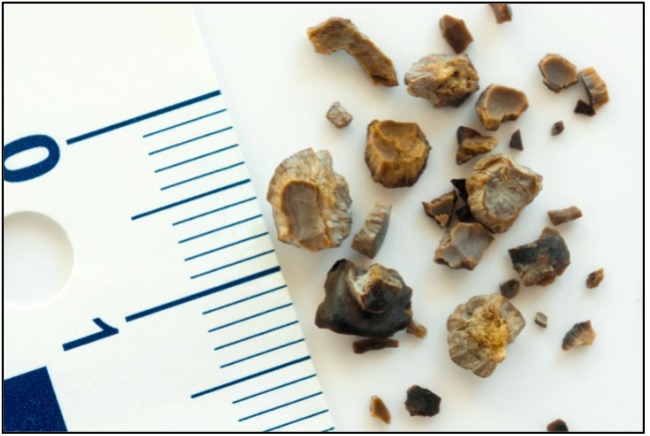By Dr. Barry M. Zisholtz, M.D., F. A. C. S
Kidney stones have been documented for thousands of years. They have been discovered in ancient Egyptian mummies, clearly well before we had the type of instrumentation and technology that we have in the 21st century. It is almost impossible to comprehend how ancient man dealt with something so painful without the proper instrumentation.

It is estimated that up to 3% of people will develop kidney stone disease by the age of 70, and, once you develop one stone, the recurrence rate ranges from 10% to 35% over the next five years.
For this reason and because kidney stones are such a painful condition, it is imperative that we do our best to take care of our bodies and avoid the pain of kidney stones.
Understand Your Risk
Kidney stones are most commonly seen in people between the ages of 20 and 40 but can present at almost any age. There are certain types of kidney stones that are hereditary and certain types of kidney stones are related to geography and climate as well.
The state of Georgia is in a location which we call “The Stone Belt” where the prevalence of kidney stone disease is at a much higher incidence than other parts of the United States. Therefore, especially in our state of Georgia, we should try and focus on prevention.
Most people think that kidney stones are just very painful conditions, but at times if associated with concurrent infection it could be a life-threatening condition. Kidney stones can even lead to loss of a kidney if left untreated. Sometimes kidney stones can even be painless!
The fact is, that all kidney stones are not the same. We will focus on dealing with prevention in a global sense but depending upon an individual‘s history, genetics, and other medical issues, there may be other factors and medications required to prevent kidney stones.
Prevent Kidney Stones from Happening to You
The consistent recommendation for people at risk for kidney stones is to drink plenty of fluids and be sure that one voids well over 2 liters of urine a day. A healthy lifestyle with proper diet and exercise will also help.
In addition, preventing urinary tract infections by using the restroom at regular intervals and ensuring that the bladder completely empties at those times may help prevent certain types of kidney stones from forming.
The Types of Kidney Stones
The most common kidney stones are made of calcium oxalate but that doesn’t mean in any shape or form that one has to avoid calcium. Based upon the type of stone, a full of evaluation can be made to determine how to prevent those specific stones.
For example, some stones may be related to a diet that is rich in oxalates which are found in nuts, spinach rhubarb cranberries, and asparagus. Some stones may be related to people living a sedentary lifestyle or with neurologic diseases that don’t allow them much mobility. There are some stones, such as uric acid stones, that are related to eating too much protein or may be related to a condition called gout. Certain type of stones such as Cystine stones are inherited as a genetic condition.
So, the take-home message is to drink plenty of fluids, live a healthy lifestyle, and if you do get a stone, once it is treated, an evaluation can be performed. Certainly, if multiple stones are found, a visit with a urologist can determine the cause, and the patient can be put on a specific individualized regimen to prevent further recurrences and to avoid the pain of kidney stones.